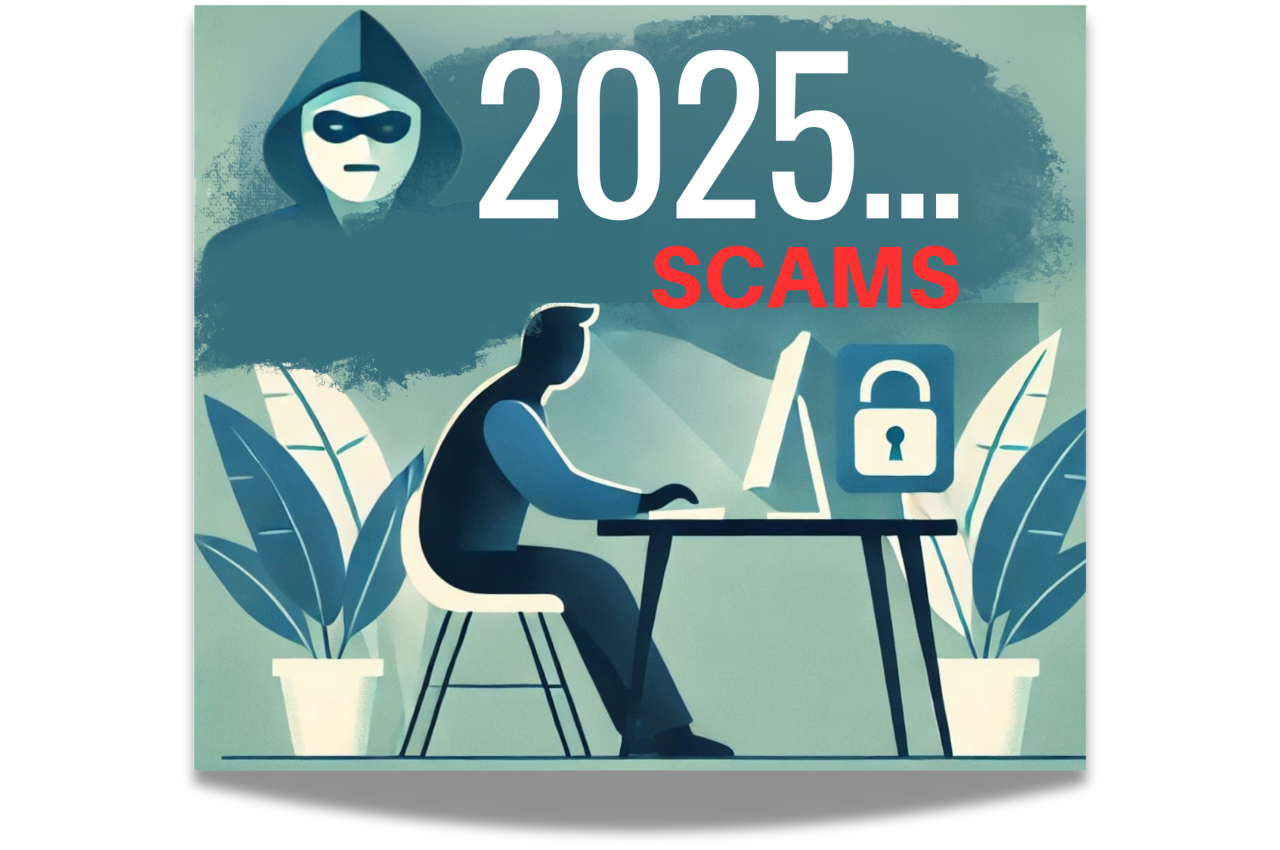With the continuous evolution of technology, scams are becoming more sophisticated in 2025. Staying informed and vigilant is critical to protecting yourself and your loved ones. Here are ten essential tips to safeguard against online and offline scams this year:
Most Common Forms of Fraud in 2025
Phishing Scams
Phishing remains one of the most prevalent forms of fraud, where scammers impersonate trusted entities to steal sensitive information through fake emails, websites, or messages.
AI-Driven Deepfakes
Deepfake technology is being exploited to create realistic videos or audio messages, often used to impersonate family members, friends, or public figures to gain trust and extract money or information.
Cryptocurrency Scams
With the rising popularity of digital currencies, scammers have developed elaborate schemes, including fake investment opportunities, wallet hacking, and phishing attacks targeting crypto users.
E-Commerce Fraud
Fake online stores and payment gateway frauds continue to target unsuspecting shoppers, particularly during holiday sales or major shopping events.
Impersonation Scams
Scammers often pose as government officials, tech support, or financial institutions to create urgency and manipulate victims into sharing personal data or making payments.
10 Essential Tips
1. Scrutinize Unsolicited Messages
Whether it’s an email, text, or social media message, unsolicited communications are a common tactic used by scammers. Be cautious of messages claiming you’ve won a prize, owe money, or need to verify sensitive information. Avoid clicking on links or downloading attachments from unknown sources.
2. Double-Check Caller Identity
Phone scams remain prevalent in 2025. Scammers often impersonate trusted entities like government agencies or banks. Use official contact numbers to verify the legitimacy of calls. Hang up if you feel pressured or threatened.
3. Be Wary of AI-Powered Impersonations
Advancements in AI have enabled scammers to generate convincing deepfake videos or voice messages. Verify requests from people claiming to be friends, family, or colleagues through secondary means, such as a direct phone call.
4. Secure Your Digital Footprint
Enable two-factor authentication (2FA) on all accounts, and use strong, unique passwords for each service. Password managers can simplify this process and keep your credentials secure.
5. Educate Yourself About Current Scams
Stay updated on trending scams by following trusted sources like government websites and cybersecurity blogs. Knowledge about scams targeting your area or demographic can help you identify red flags early.
6. Avoid Quick Money-Making Schemes
Promises of high returns with minimal risk are a hallmark of investment frauds. Verify opportunities through reputable financial advisors and avoid investing in schemes you do not fully understand.
7. Verify Online Marketplaces and Retailers
When shopping online, ensure the website is legitimate. Look for “https://” in the URL and read reviews before making purchases. Be cautious of deals that seem too good to be true.
8. Guard Personal Information
Scammers often gather personal details through phishing attempts. Never share sensitive information like your Social Security Number, credit card details, or passwords unless you’re certain of the recipient’s legitimacy.
9. Monitor Financial Activity
Regularly review bank and credit card statements for unauthorized transactions. Many financial institutions offer alert services to notify you of suspicious activities.
10. Report Suspected Scams
If you encounter a scam, report it to local authorities or online scam reporting platforms. Timely reporting can help authorities take action and prevent others from falling victim.
Keep in Mind for 2025
As technology evolves, so do scam tactics. AI and blockchain technologies, while offering significant benefits, also open up new avenues for fraud. Stay informed about how these technologies are being exploited by scammers.
Share tips and knowledge about scams with friends and family. Collective awareness can significantly reduce the likelihood of falling victim.
Consider using tools like VPNs, encrypted messaging apps, and advanced antivirus programs to enhance your online security.
Review and limit the amount of personal information you share online, especially on social media platforms. The less information scammers can access, the safer you are.
Final Thoughts:
In 2025, scams are more creative and convincing than ever. Staying vigilant, verifying information, and securing your digital presence are key to keeping yourself safe. Share these tips with your family and friends to help protect them as well.
